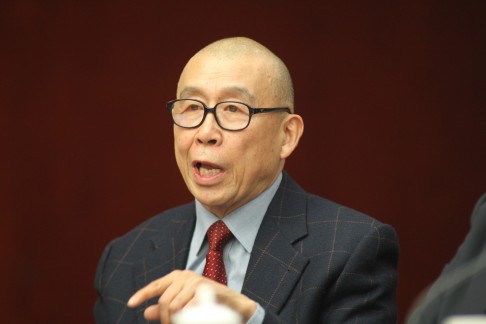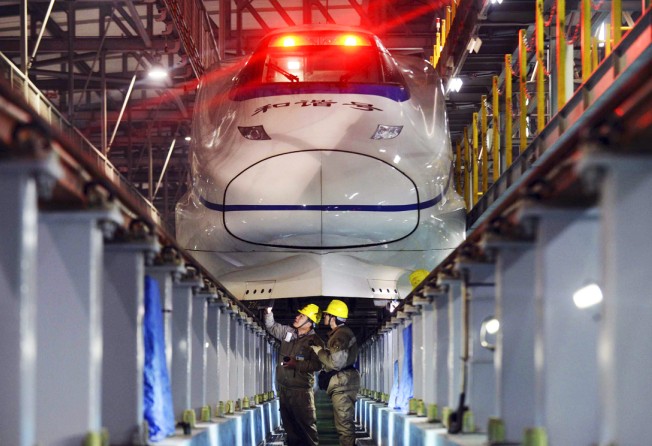
Beijing plans external audit of state firms' foreign assets
Independent accounting companies will probe what is thought to be a fertile ground for graft

China’s top state-owned enterprises regulator is planning to invite independent accounting companies to carry out an audit of state firms’ overseas units in an unprecedented move amid concerns they provide fertile ground for corruption.
The State-owned Assets Supervision and Administration Commission (Sasac) said yesterday it would launch a bidding process for accounting firms interested in conducting the audit.
The bidders should not have conducted auditing services for SOEs and their overseas subsidiaries over the past three years.
Beijing has listed SOEs as this year's primary target in its anti-corruption campaign. The graft-busting agency, the Central Commission for Discipline Inspection, is expected to finish inspecting all major SOEs within the year. Since the last inspections in 2014, 14 SOE executives have been punished or detained.

Observers said that even though a number of agencies were involved in approving SOEs' overseas operations, the auditing of such assets remained weak, making them easy targets for corrupt officials.
Ma Guoxian, a professor at the Shanghai University of Finance and Economics, said external audits were desperately needed to fix the loopholes in SOEs' finance management, as the risk of capital misuse was mounting with the rising pace of China's outbound investment.
"Currently SOE auditing is mainly performed within Sasac, giving rise to irregularities," Ma said. "However, the scandals involving some officials at SOEs, including China National Petroleum Corporation, have convinced the central government that external auditors are needed to stem corruption."
On Monday, the general manger of CNPC, Liao Yongyuan, was placed under investigation for graft.
Under the current auditing system, the National Audit Office (NAO) focuses on government operations and state-financed activities, including the operation of SOEs.
However, the SOEs' foreign assets are seen as a weak link, even though there is a foreign affairs audit office.
"Overseas investment and major construction projects all belong to the foreign affairs audit office's duties," said Linghu An , former deputy auditor-general of NAO. "In the past, auditing in this area was indeed weak, or even missing."
Earlier this month, at the Chinese People's Political Consultative Conference, another former deputy auditor-general of the NAO, Dong Dasheng, proposed involving third parties to audit SOEs, reported The Beijing News.
In fact, as the main investment entity, Sasac has to approve every overseas investment decision by an SOE. Overseas investment plans by SOEs need approval from Sasac, the Ministry of Commerce, the State Administration of Foreign Exchange and some other administrations.
"Sasac, representing SOE investors, has participated in the investment decision-making process. However, both Sasac and CNAO are missing from the auditing role during the investment process and following investment," said an SOE source.
Other SOE sources admitted there was a lack of auditing, but said the third-party audits faced obstacles.
"That doesn't mean those foreign companies or governments would allow [the audits]," said another source. "It will be very hard to audit the assets in which SOEs have shares but are not the controlling shareholder."
Additional reporting by Jane Cai